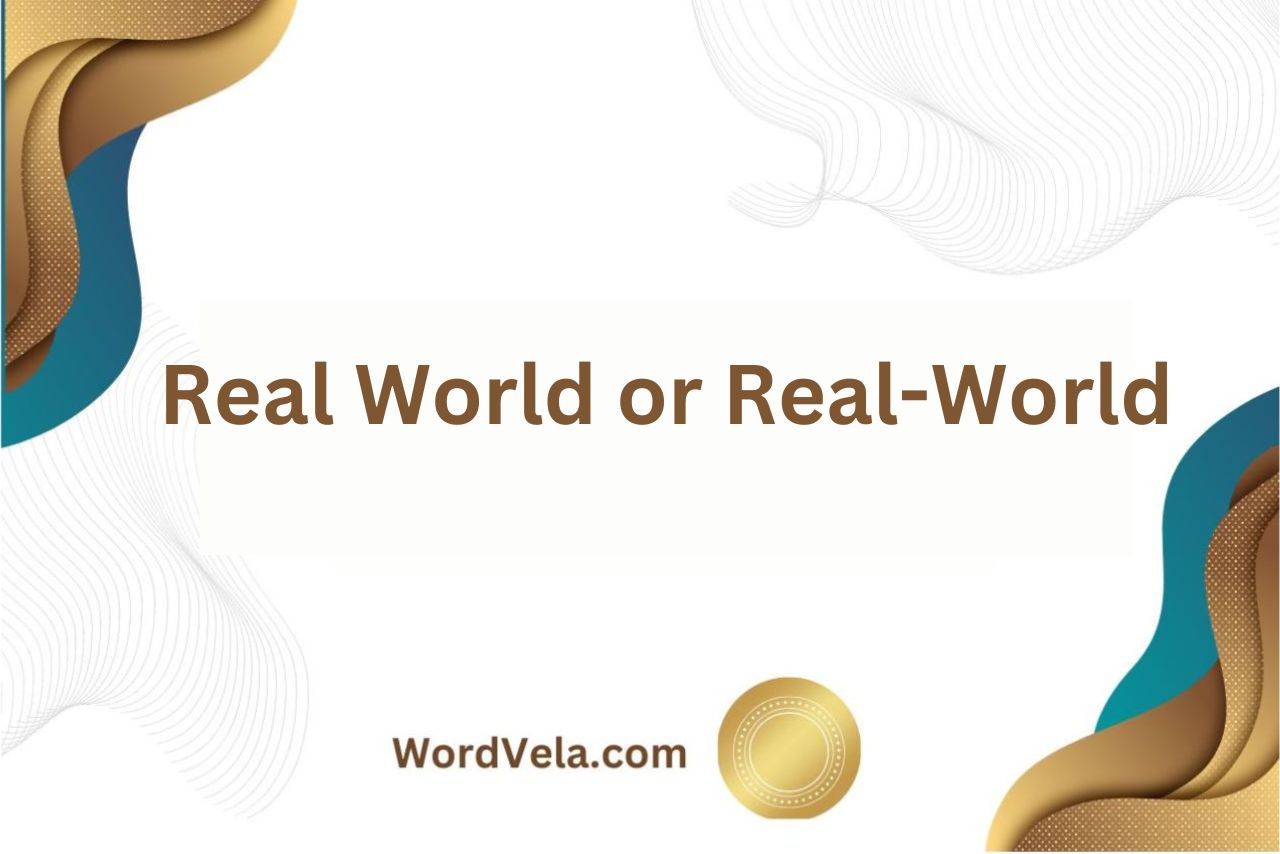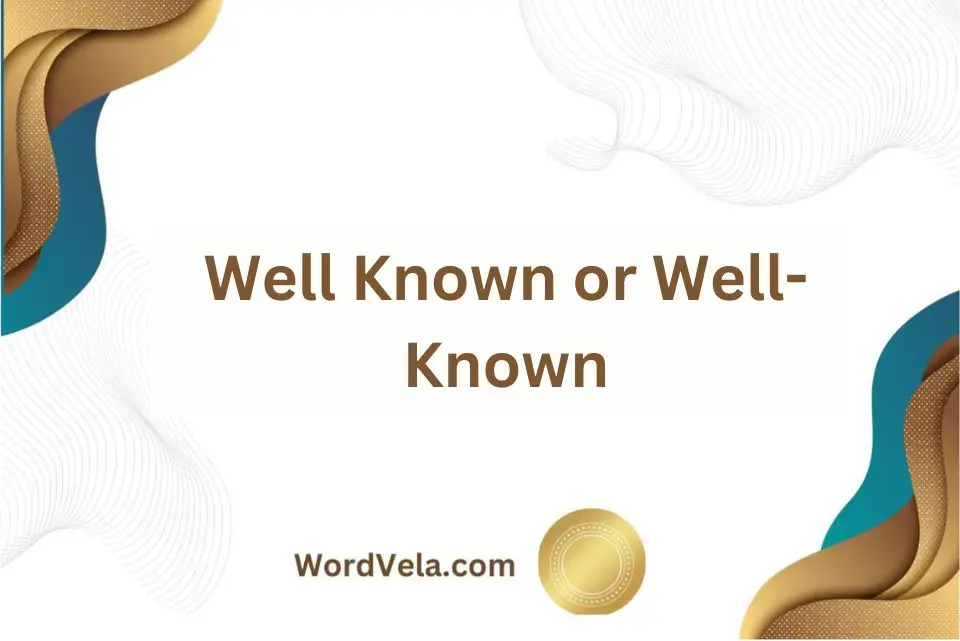Real World or Real-World: Which word is correct? When it comes to deciding between “real world” and “real-world,” the answer lies in understanding how compound words work in the English language.
The distinction may seem subtle, but it can impact the clarity and correctness of your writing.
Let’s delve into this common linguistic dilemma to determine which form suits your intended message best.
Table of Contents
Real World or Real-World:
Both “real world” and “real-world” can be correct, depending on the context.
Real world (adjective): This is the most common usage. It describes something that exists in the actual world, as opposed to imagination, theory, or a virtual environment.
Real-world (hyphenated adjective): This is less common but still acceptable. It functions the same way as “real world” but can add emphasis.
Real World Meaning:
The real world has a few different meanings, but they all center around the concept of actuality or practicality.
Here’s a breakdown of the two main uses:
The Actual World vs. Ideas or Concepts:
Practical Application vs. Theory:
Real World Examples:
Here are some real-world examples to illustrate the concept of “real world” in different contexts:
The Actual World vs. Ideas or Concepts:
Practical Application vs. Theory:
Real World Synonym:
Here are some synonyms for “real world” that you can use depending on the context:
Emphasizing Actuality:
Real World or Real-World Difference:
| Feature | Real World | Real-World |
|---|---|---|
| Part of Speech | Adjective | Adjective (hyphenated) |
| Meaning | The actual world; practical application | Same as “Real World” |
| Grammatical Correctness | Correct | Correct (Less common) |
| Emphasis | Standard | Stronger emphasis on the contrast between theory/abstraction and practice |
| Usage | Most common | Can be used for emphasis |
| Example | “They needed to develop real-world skills.” | “The training program focused on real-world applications of the software.” |
Real World Review:
“Real World Review” can have a few different meanings depending on the context.
Here are the most likely interpretations:
When to Hyphenate a Word?
Here’s a breakdown of the most common situations when you’d hyphenate a word:
Compound Adjectives:
These are two or more words that function together to describe a noun. The hyphen helps clarify their meaning and avoid confusion.
Examples:
Numbers:
Written-out numbers between twenty-one and ninety-nine typically use a hyphen.
Examples:
- twenty-two, thirty-eight, eighty-six
Prefixes:
Hyphens are sometimes used with prefixes, especially when the prefix is followed by a proper noun, a capital letter, or a word that already has a hyphen.
Examples:
Why Do People Say the Real World?
People say “the real world” for a few reasons:
Contrasting with Imagination or Theory: The most common reason is to distinguish between the actual world we experience every day and things that aren’t real, like fictional worlds, dreams, or abstract ideas.
- It emphasizes the practicalities and limitations of our everyday lives compared to the freedom of imagination or the simplicity of theories.
Highlighting Practical Application: Another reason is to emphasize the importance of skills and knowledge that can be used in real-life situations. “Real world” is used to contrast theoretical knowledge with the practicalities of applying it.
- It highlights the need to develop skills that are relevant and useful in everyday scenarios.
Expressing Disillusionment: Sometimes, “real world” can be used with a negative connotation, suggesting that it’s harsh or less pleasant than imagination or ideals.
- It can imply a sense of disappointment or frustration with the challenges and limitations of everyday life.
Conclusion and Final Thoughts!
When deciding between “real world” and “real-world,” it is essential to consider the context in which the term is being used.
While both versions are technically correct, understanding the nuances of hyphen usage can enhance clarity and readability in your writing.
By following specific guidelines based on whether “real world” is functioning as a compound adjective or two separate words with distinct meanings, you can ensure that your communication remains precise and effective.
Ultimately, language evolves over time, so staying informed about current conventions and adapting to changes will equip you to navigate these linguistic subtleties confidently.
Whether you choose one version over the other may depend on personal preference or style guides relevant to your field of work.











Leave a Reply